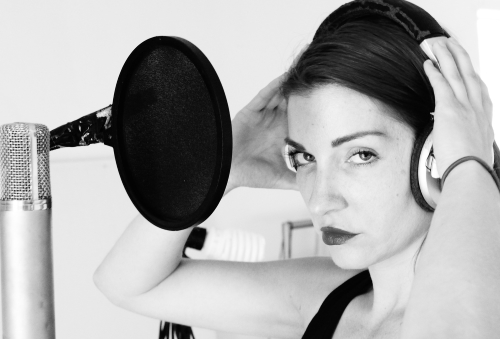Telling an audio engineer to listen is like telling a doctor to heal. Of course we’re going to listen! How else do we get a great-sounding recording?
You’re good at listening to the music, but how well do you listen to the artist?
I produced an album for a really talented singer-songwriter named Whitney Winkler in which she asked me to play acoustic guitar on the project. Once we had the guitar and scratch vocals recorded, she went home and left me to add various elements to the songs to fill them out.
Her songs have a great groove to them, so I naturally felt some light drums would be perfect. I worked for a few hours, programming a quirky little drum groove and recording some extra percussion.
She had mentioned (off the cuff) that she like liked a particular track from my album, which features a blend of acoustic instruments with a hip-hop-sounding drum loop/percussion. So, when considering how to handle her mix, I thought I’d take it in this direction.
The song quickly took on a very different feel.
I kinda liked it, but before I dove in and booked a bass player and really committed to the arrangement, I emailed Whitney a bounce of what I had done so far. She wrote back that she really wasn’t crazy about it.
As it turns out, she wanted the album to have more of a “coffee-shop” feel than a produced, full-band feel. She didn’t really want drums or lots of extra production. She felt like the songs needed to maintain an acoustic feel.
What would you imagine my response to be? Did I get all defensive and angry that she would dare to question my production prowess?
Heck no.
These are her songs. I want her to be absolutely thrilled with the finished recording. The ideas I proposed were fairly over-the-top. I had a feeling she might not like them, but I gave it a shot anyway.
Did I then give up all creative input? No, not at all. In fact, this process really helped us focus. Up until that point, I hadn’t done a great job of asking her what exactly she was wanting out of this album.
That was my fault. Once we’d heard an example of how she didn’t want it to sound, we were able to hone in on exactly what her goals are, and things then came together very nicely.
What is the moral of this story?
Be creative. Take chances, but don’t alienate the artists. Including them in the decision-making process is a wise move, and it makes the entire process more productive, more creative, and more fun.















